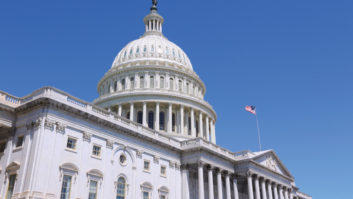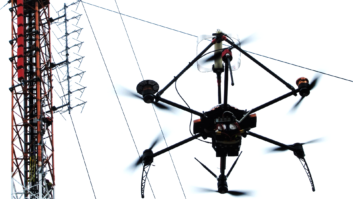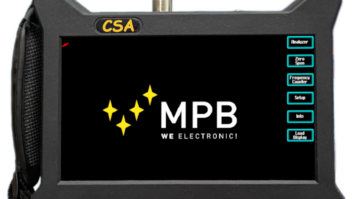WASHINGTON — The Senate Commerce Committee took a deep dive into various government and industry efforts to make more spectrum available for 5G.
Helping focus the hearing were two bills currently working their way through Congress, the SPECTRUM NOW and AIRWAVES Act.
“Identifying spectrum resources not just for the next three years, but for the next 10 years and beyond is essential if we are to retain American leadership,” said Committee chair Sen. John Thune (R-S.D.).
Craig Cowden, SVP of wireless technology for Charter, put in a plug for its Wi-Fi mobile broadband play. He said the company’s Wi-Fi network now served 280 million wireless devices, some capable of enabling speeds approaching 1 Gig.
Charter this week announced it was upgrading to 802.11ax, a Wi-Fi standard that meant increased speeds and coverage, more robust video streaming and better device battery life.
He said Wi-Fi was the starting point for the company’s mobile strategy, in combination with licensed spectrum — Charter launched Spectrum Mobile earlier this month in 41 states in combination with Verizon.
Charter is currently testing LTE small cells in Tampa and Charlotte and plans to expand to Los Angeles and New York City in the next few months, he told Congress.
Cowden put in a plug for opening up the 5.9 GHz band for unlicensed use, given that it is adjacent to the most used WiFi band, calling it the “gateway” to a WiFi revolution.
“The nation must maintain a balanced spectrum policy to support various types of wireless technologies as an engine of innovation,” said ranking member Sen. Bill Nelson (D-Fla.). “That means we need additional licensed spectrum for 5G and other services, but also, we have to make more spectrum available for unlicensed services. We should free up blocks of spectrum when we can, but given that relocating spectrum users has proven quite difficult, we should fully embrace spectrum sharing when we cannot.”
CTIA president Meredith Attwell Baker, another witness, agreed, but with an added caveat. “Our industry cannot win the race to 5G alone. We need your help to capture global leadership. Today’s hearing is focused on spectrum, one of the two critical areas where we need your help to modernize our nation’s approach. The second is modernizing siting rules for tomorrow’s networks.”
The FCC is currently proposing various ways to speed tower citing and remove impediments to wireless buildouts. Sen. Thune also has a bill to speed citing, which Nelson said he was “not alone in receiving a lot of passionate feedback from local officials, public power companies and others” about. He said he looked forward to a “robust” debate.
Local regulators fear the feds will run roughshod over local ordinances and restrictions in the race to 5G.
Baker said passage of the AIRWAVES Act is the most important thing Congress could do to ensure the U.S. had the spectrum resources to be competitive in 5G.
The Advancing Innovation and Reinvigorating Widespread Access to Viable Electromagnetic Spectrum (AIRWAVES) Act mirrors legislation in the Senate —backed by Sens. Cory Gardner (R-Colo.) and Maggie Hassan (D-N.H) that requires the FCC to hold auctions in each of the next three years that grants spectrum licenses in various bands.
The National Telecommunications and Information Administration will identify the frequencies for either commercial license use or non-federal unlicensed use, and directs the FCC to allocated 10% of the auction proceeds to fund wireless infrastructure in unserved or underserved rural areas.







